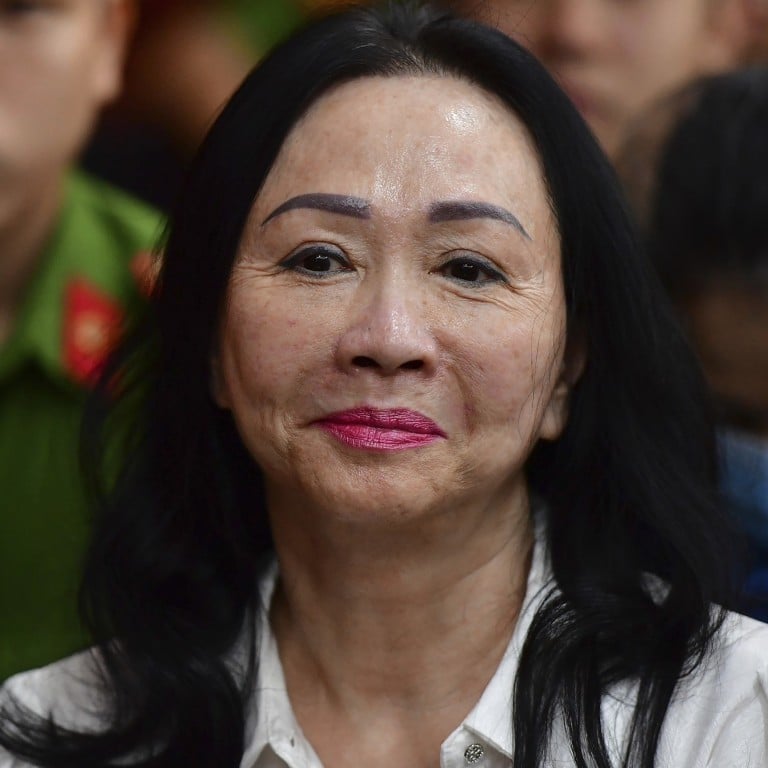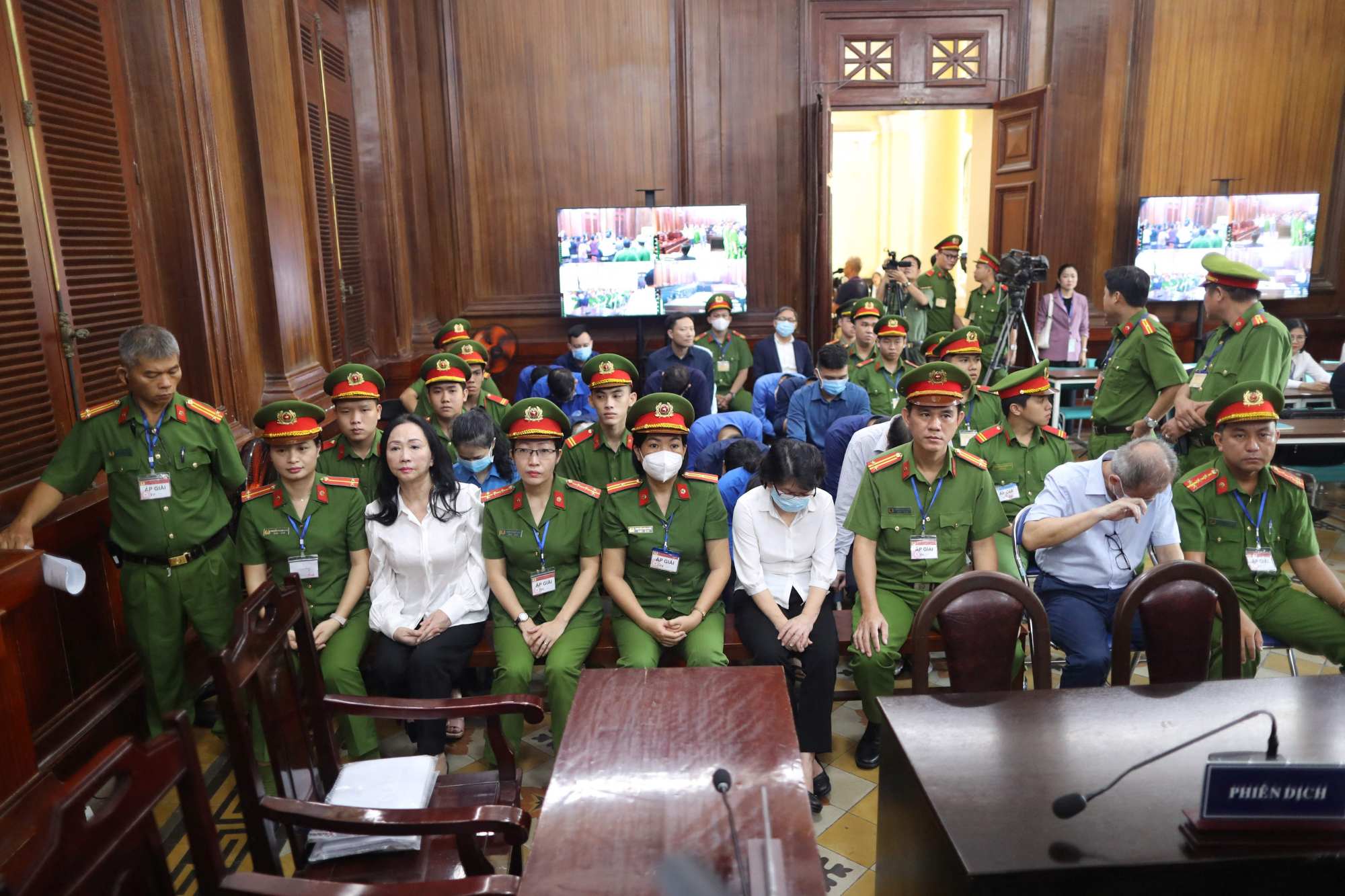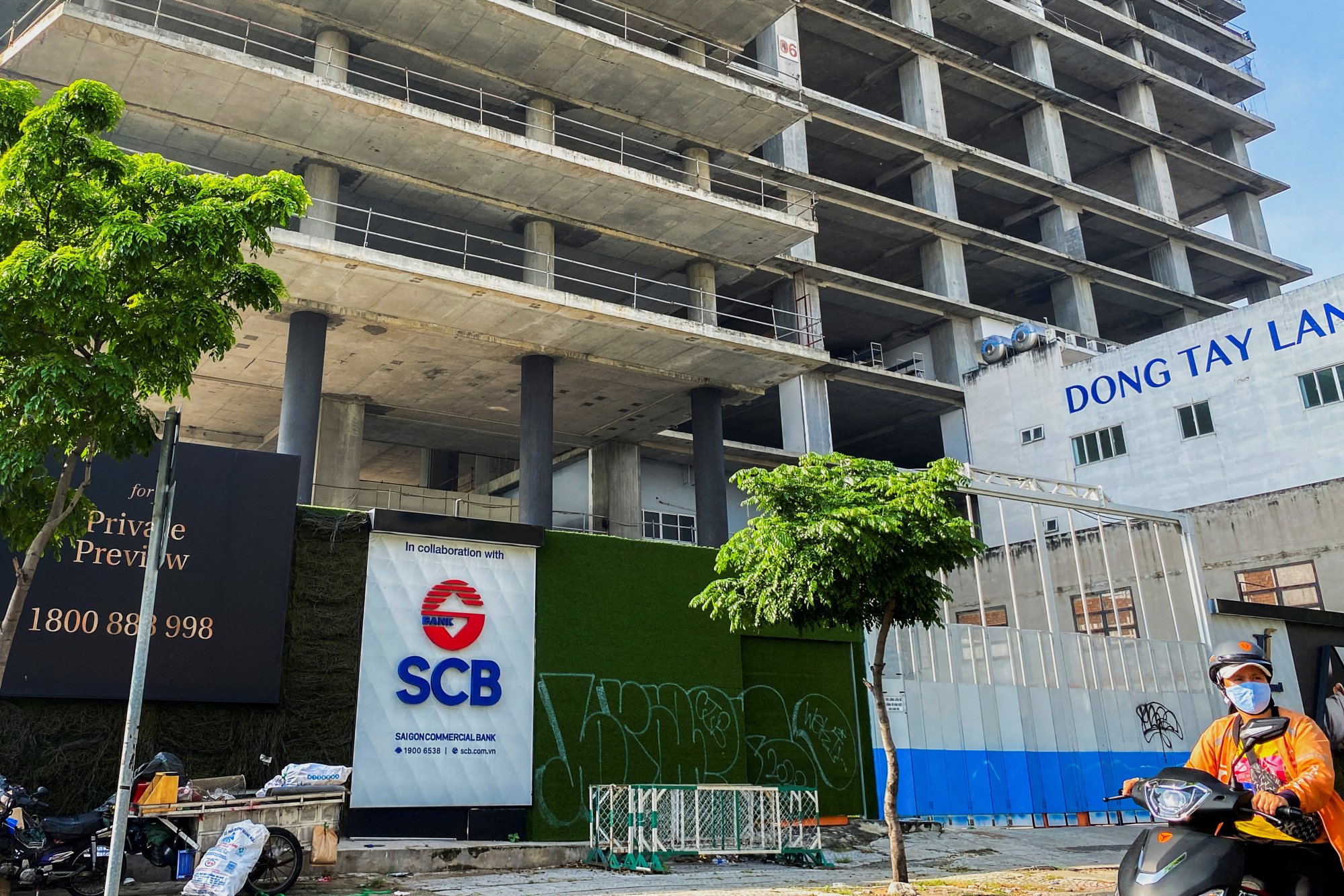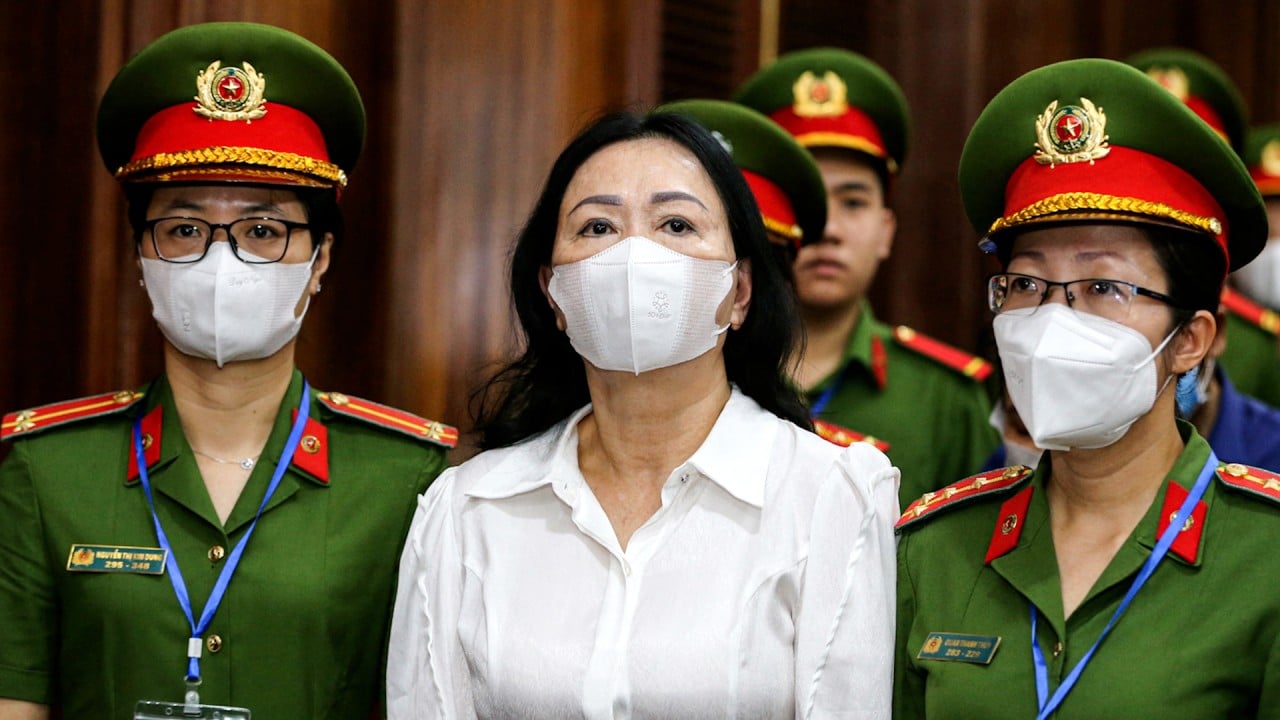
Vietnamese property tycoon Truong My Lan sentenced to death in US$12.5 billion fraud case
- Truong My Lan, 67, was found guilty of embezzlement, bribery, and banking regulation violations for orchestrating a massive fraud using hundreds of ghost companies
- Lan’s actions pushed the Saigon Commercial Joint Stock Bank into a state of ‘special control’ and eroded the public’s trust in the state, the court says
Vietnamese real estate tycoon Truong My Lan was sentenced to death on Thursday after a court found her guilty of embezzlement, bribery and banking regulation violations in a fraud trial which saw her accused of plundering over US$12.5 billion from a bank using hundreds of ghost companies.
Details of the verdict have been widely shared on state media, offering a rare window into the rationale behind a court decision in a secretive country where the justice system is normally opaque. Late on Thursday, state media said Lan’s conviction for breaching bank laws that caused a loss of US$27 billion in total from the bank – including the embezzled billions – carried a 20-year sentence on its own.
In a five-week trial in Ho Chi Minh City which has gripped Vietnam, Lan, 67, alongside dozens of others, was accused of orchestrating a massive fraud at the Saigon Commercial Joint Stock Bank (SCB), which drained the savings and investments of tens of thousands of people.
Prosecutors sought the death sentence for Lan – who is married to Hong Kong investor Eric Chu Nap-kee who is also on trial – due to the severity of the crime, which went to the heart of Vietnam’s financial and real estate industry.
Who is Truong My Lan? From market stall to Vietnam’s biggest fraud case
“The defendant’s actions not only violated the asset management rights of individuals and organisations but also pushed SCB into a state of special control; eroding the public’s trust in the leadership of the Party and the State,” the verdict said according to state media.
Lan’s husband Eric Chu was on Thursday sentenced to nine years’ imprisonment for violating banking regulations, according to state media, with scores more defendants still awaiting their sentences.
Communist-run Vietnam is one of the last Asian countries to carry out death penalties. But Lan has the right to appeal against the sentence.
It comes as the country’s Communist leadership drives a corruption crackdown which is scything through Vietnam’s political and business elite.
Lan drove the merger of struggling SCB with two other banks in 2011 and then used the rebooted lender to withdraw cash, embezzle funds, and finance her personal business and the Van Thinh Phat real estate company through shell firms, a judge said according to state media.
The fraud was run through over 1,000 ghost companies which hid the destination of the cash as well as her real stake in SCB, which prosecutors said ran to over 90 per cent.
“Lan is essentially the owner of SCB, directing not only credit activities but also personnel matters, appointing key positions, and offering generous salaries and bonuses to facilitate her control,” the verdict read.

The court also accused Lan of committing crimes repeatedly over a long period with “sophisticated methods” in “an organised manner”, causing “severe consequences with no possibility of recovery”, according to state media.
About US$1.2 billion was lost by holders of bonds issued by Van Thinh Phat, Lan’s real estate firm, according to investigators.
At the time of her arrest in October 2022, Vietnam’s benchmark index and bank stocks plunged in a reflection of her importance to the finance sector.
In her final statement in early April, Lan expressed remorse, saying: “I was foolish to venture into the harsh world of business, into the banking sector which I was not proficient in,” according to state media.
The trial is a part of the “Blazing Furnaces” anti-corruption campaign led by Communist Party Secretary General Nguyen Phu Trong.
The campaign has led to the resignation of two presidents and two deputy prime ministers, among hundreds of high-profile arrests.
The revelations in the Lan trial may damage investor confidence, experts have said, as it exposes years of illegal and undetected goings-on inside the country’s biggest lender and the pivotal real estate sector.
Three independent auditing firms in the “Big 4” were also accused of committing violations in the SCB case, according to prosecutors, without identifying them.
But public documents show top global firms Ernst & Young, KPMG and Deloitte did not flag concerns about the bank in their audits of SCB, Vietnam’s largest commercial bank by assets.
From early 2018 through October 2022, when SCB was bailed out by the state after a run on its deposits, Lan appropriated large sums by arranging unlawful loans to shell companies, according to public investigators.
Van Thinh Phat and its affiliates were accused of illegally issuing bonds to raise money from the investors from 2018 to 2020. Lan’s company made 25 bond issuances worth US$1.24 billion, all through proxies, and sold to buyers through SCB.
But the verdict has not addressed the losses of the estimated 42,000 victims who invested their lifetime savings in fraudulent products. Another trial will take place to remedy the bond fraud, in which Lan will face additional charges, according to investigators.

“I’m in so much pain that I want to die, but I know I can’t die. I need to get the money back to repay my family,” said Nguyen Thi Diep, a victim of SCB.
Diep, 68, bought over US$80,000 bonds and issuances in shell companies linked to SCB, amounting to the savings of her entire family, supposed to fund for her children’s education and healthcare for older family members.
“My family hates me. I’m a devil in their eyes,” Diep told This Week in Asia.
Just one day before the trial, several dozen people gathered at an SCB branch in Ho Chi Minh City to demand their money back.
Nguyen Thi Hong, governor of the State Bank of Vietnam, has told the public that all savings accounts, including certificates of deposit, are secured by the central bank irrespective of the circumstances.
Nevertheless, she refused to offer any guarantees for the bonds bought through SCB by investors, according to state media.


